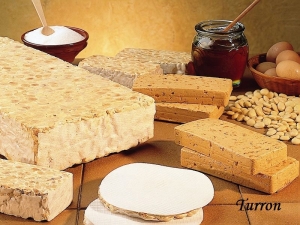
¡Feliz Navidad!
I hope you have great plans for this Holiday and a nice time with your loved ones! Te deseo una feliz navidad.
As this special time of the year approaches, everything in our lives seems to be slightly different and unique. The Christmas season is a big deal throughout the Spanish-speaking world. It’s a great time to learn more about the specific words and traditions we use during this time of year.
Navidad en España
In Spain, Christmas holidays last a long time. Usually, kids don’t have to go to school from around Dec 23rd to January 7th. Let me present you the traditional schedule of a Spanish Christmas.
- Nochebuena: We celebrate the 24th at night with a big feast, usually at our grandparents’ home. We’ll eat more during la nochebuena than during any other night of the year. Árboles de navidad (Christmas trees) and belenes (Nativity scenes) are seen in every Spanish house. After dinner, the whole family likes to sing villancicos (Christmas carols).
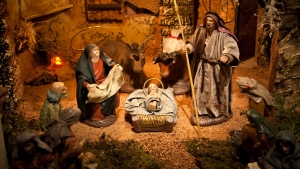
- We have some very special desserts that are served just in this season. Here in Spain, we enjoy turrones, mazapanes, polvorones, mantecados. The main course at dinner is usually pavo relleno (turkey). After this, there is always a brindis (toast), with cava (
sparkling wine) sidra (cider) or champán (champagne).
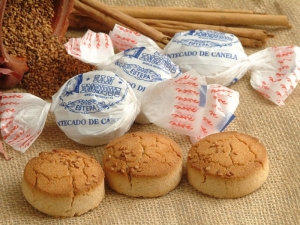
- Navidad: December 25th it’s properly the day for Navidad. It’s the most important religious day of the year. Throughout Spain, with our country’s strong Catholic tradition, many churches offer special misas (masses) on this day. There is an extra special misa at 00:00, called Misa del Gallo (Rooster mass), when Jesus’ birth is worshiped.
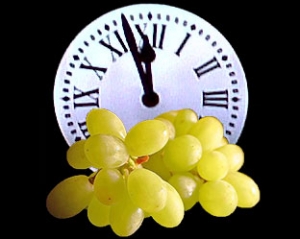 Nochevieja: This is a very special and fancy night in Spain, where we go all out! We celebrate la nochevieja with another big dinner (again!), and then with the tradition of las doce uvas (12 grapes).
Nochevieja: This is a very special and fancy night in Spain, where we go all out! We celebrate la nochevieja with another big dinner (again!), and then with the tradition of las doce uvas (12 grapes).
This is one of my favorite traditions. When midnight approaches, you get yourself a set of 12 grapes, have them prepared, and watch the TV attentively, were the first 12 seconds of the year are broadcasted nationwide from Puerta del Sol, Madrid. You have to eat one grape every second. Sometimes it’s too fast and funny things happen! Each grape will give you good luck for each month in the year to come.
Another particular tradition can be found underneath our clothes. It is said that red underwear is good for next year luck in love – so that’s what we do! We wear ropa interior roja during the last night of the year.
- Día de Reyes (Three Wise Men’ Day): This starts on January 5th at night, when good children receive their regalos (presents) from Melchor, Gaspar y Baltasar. They are the Three Wise Men who gave special presents to newborn Jesus in Belem. They come in camellos (camels), for whom Spanish moms place water and milk to recover from their long journey. For the Reyes Magos themselves, they give Roscón de Reyes, a delicious Christmas cake, prepared only during this time of the year.

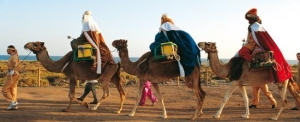
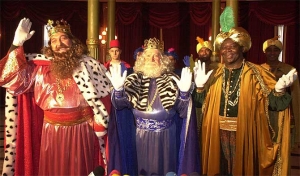
One of the most famous songs for this time of year is Mecano’s Un año más (One more year), about the year to expire and the new one to come, and how the españolitos prepare for it. Give it a try during this holiday!
Te deseo una Feliz Navidad a ti y a todos tus seres queridos. ¡Hasta pronto!


